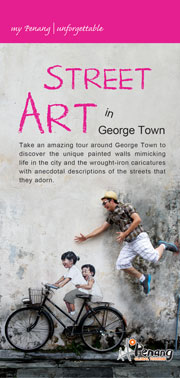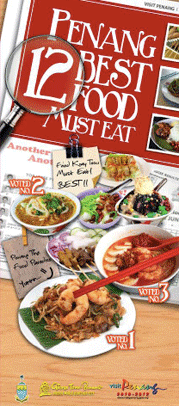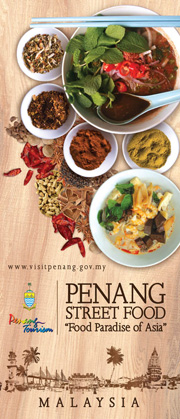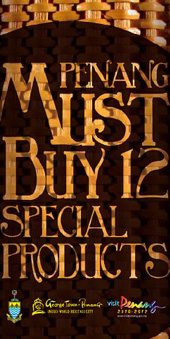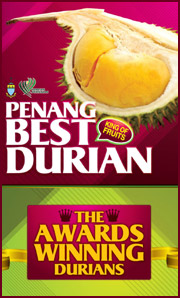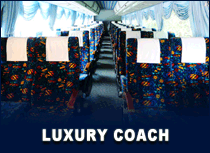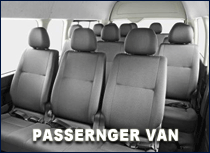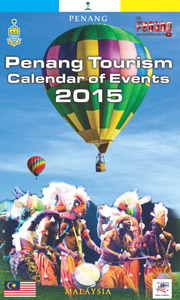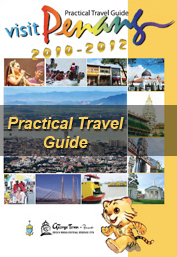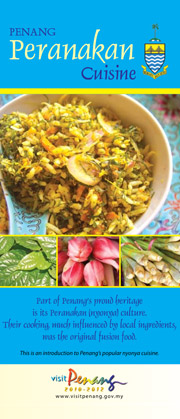Introduction
Widely known as the Pearl of the Orient, Penang is one of Asia's most famous islands. Its natural beauty and exotic heritage have been attracting curious visitors for centuries.
Travel guides have referred to it as "... a place of mysterious temples and palm-shrouded beaches", while literary giant Somerset Maugham is known to have stayed on the island and spun tales about the romance of the white planter in South-East Asia.
Penang today is very much an amalgam of the old and the new C a bustling port, a heritage city and an industrial base. Perhaps it has more to offer per square mile than any other place in the world. For sheer variety of locales, cultures and foods, Penang is hard to beat. In it's capital Georgetown, modern skyscrapers rise from one of Southeast Asia's largest collections of intact prewar buildings. Manufactures of sophisticated electronic goods compete for space with wet markets and old temples. Where else can you find a century-old church, a Chinese temple, an Indian temple, and a Muslim mosque all within a five-minute walk from one another? Likewise, tall urban structures stand beside the red-tiled roofs of Chinatown and "Little India" is just across the road, while the Malay kampungs lie on the outskirts. The seamless melding of the many peoples of Penang is best reflected in the delicious hawker foods (available around the clock) and the adherence to traditions and customs. Festivals abound throughout the year.
Should one wish to get away from the busy city, the idlyllic beaches and soothing hills are but minutes away, while the industrial free trade zone, the "Silicon Valley of the East", and the international airport are equally accessible.
Penang or its Malay name of Pulau Pinang is made up of a turtle-shaped island, a total of 292 square kilometers, and a strip of land called Seberang Prai on Peninsular Malaysia about 48 kilometers wide.
Since 1985, the island has been joined to the mainland by the Penang Bridge, one of the longest bridges in the world. Alternatively, travellers arriving from the mainland can hop onto the ferry and take a 20-minute ride across. There are also international flights that connect directly to the international airport on the island.
Location
Penang is popularly known as Pearl of the Orient and also dubbed as Silicon Valley of the East. Bounded to the north and east by the State of Kedah and to the south by the State of Perak, it consists of a turtle-shaped island and a coastal strip on the mainland called Province Wellesley (Seberang Prai). The island measure 292 square kilometers and is situated on the north-western coast of the Malay Peninsula at the entrance to the Straits of Malacca while the mainland measures 738 square kilometers. The capital of Penang is George Town.
The island and mainland are separated by a channel 3 km wide at the narrowest point and 13 km at the widest. They are linked by the 13.5 km Penang Bridge, one of the longest bridges in the world, and a ferry service.
Ferry service at the Raja Tun Uda terminal (on the island) operates from 5.30 am to 1.00 am while that at the Sultan Abdul Halim terminal (mainland) operates from 6.00 am to 12.30 am.
Climate
Penang's climate can be described as tropical rainforest, a pleasant mix of warm, sunny days and occasional cooling rain storms, with August through November being the wettest months generally. Average rainfall is 267 cm (105 inches) throughout the year. Humidity is usually high, and the temperature varies between 21° and 32° Celsius (70° to 95° Farenheit).
Population
Penang has 1.612 million people, of which about half live on the island (2011 Census). The population is multi-racial, young and almost equally distributed between male and female. The racial breakdown is as follows: Chinese 41.5 percent, Malay 39.9 percent, Indian 10.0 percent, others 0.4 percent and non-citizens 7.9 percent.
Languages
Although Malay is the national language, English is also widely used, particularly in business and the tourism industry. As Penang was (and still is) a meeting point of many cultures, other languages and dialects are also spoken and understood - these include the various Chinese (Mandarin, Cantonese, Hakka, Hokkien) and Indian (Bengali, Hindu Malayalam, Punjabi and Telegu) dialects, as well as smatterings of Thai, and some European languages. The Alliance Francaise and Goethe Institute for example, offer courses in French and German respectively.
Religion
The official state religion is Islam, but freedom of worship is observed. Buddhism, Christianity, Hinduism, Sikhism, Taoism and other religions are freely practiced C Muslim mosques, Buddhist and Hindu temples, and Christian churches are commonly found throughout the island. Visitors can expect to be amazed by the diversity and profusion of festivals and other religious celebrations which occur regularly throughout the year.
Attire
Depending on activity. Generally you can't go wrong with clothes made of light cotton or other moisture absorbing fabric. Swim wear, sunglasses and sun block will come in handy for days on the beach. Flip flops and strappy sandals are the most comfortable footwear for walking and sightseeing. Unless you can afford to launder your clothes daily, don't bother with socks. Some classy establishments in Penang observe a dress code, so if you plan on dining there, don't leave that designer gown, suit and shoes behind.
Please note that there are NO nude beaches in Penang. Public nudity, in general, is frowned upon by the locals.
Economy
The economy of Penang is multifaceted, diverse, vibrant, thriving and growing. Not depending on any one sector for its growth, Penang's economy continues to thrive even during economic slowdowns. This can be attributed in part to the excellent infrastructure and transportation facilities. With an international airport, an excellent port for ships, access to the North-South highway and the railroad, Penang is an ideal location for the manufacturing sector as demonstrated by the presence of several international companies.
Restrictions
Import licenses are required for firearms and commercial quantities of gold. Please note that Malaysian laws provide the death penalty for drug trafficking. Other forbidden items are pornography, flick knives, broadcast receivers of a certain frequency, goods from Israel, and animals like piranhas. For more information please visit the Malaysian Customs and Excise website at http://www.customs.gov.my.
Miscellaneous
In general, Malaysians are gentle and discreet people. Please be considerate to your hosts. Blatant displays of affection like French kissing, groping, fondling, caressing etc in public are a definite no-no. What you do in private is entirely up to you. In the open, go easy on that smooch.
- If you visit a mosque or temple that is not usually on the tourist maps, it is a good idea to request permission from the caretaker on the premises. Moreover, they will often be able to tell you more than any tourist book.
- Most credit cards are accepted at hotels and restaurants, but if you travel away from the cities, you will need cash.
- Many banks have ATMs that are connected to international networks such as Cirrus and will issue cash in the Malaysian currency (the Ringgit).
- Smoking is prohibited in air conditioned public places by federal law. You will risk fines of up to RM 500.00 (not to mention the ire of non-smokers) if caught.
- Keep your passport handy, but in a safe place. It is your only form of identification and is also required when changing money at banks.
- International driving licences are required should you desire to rent an automobile to drive in Malaysia.
- Driving while under the influence of alcohol is a major offence and can involve steep fines as well as detention.
- The wearing of seatbelts while driving are compulsory.
- When it comes to motorbikes, expect the unexpected from the drivers.
- Crash helmets are compulsory while riding motorbikes.
- Malaysia's traffic system still consists of "roundabouts" (traffic circles) and they are found almost everywhere.
- Medical assistance is available in every town and city at clinics, or at local hospitals.
- Local pharmacies can often provide assistance for minor illness or the proper material needed for minor injuries. You will need a doctor's prescription for any purchase of antibiotics.
Contact Information
List of regional and international Tourism Malaysia offices and their contact details
PENANG TOURISM ACTION COUNCIL
56th Floor, KOMTAR, 10000 Penang, Malaysia.
Tel: 604.262.0202
Fax: 604.263.1020
Email: enquiry@tourismpenang.gov.my
Website: http://www.tourismpenang.gov.my
MALAYSIA TOURISM PROMOTION BOARD
Ministry of Culture, Arts and Tourism
17th Floor, Menara Dato' Onn, Putra World Trade Centre,
45, Jalan Tun Ismail, 50480 Kuala Lumpur.
Tel: 603.2693.5188
Fax: 603.2693.5884 or 603.2693.0207
E-mail: tourism@tourism.gov.my
Website: http://www.tourismmalaysia.gov.my
Source:
The Official Website of Tourism Penang by The Penang Tourism Action Council
http://www.visitpenang.gov.my
Note:
Zarika Travel Sdn. Bhd. takes no responsibilities for any mistakes made above and does not guarantee the accuracy of the information provided.



